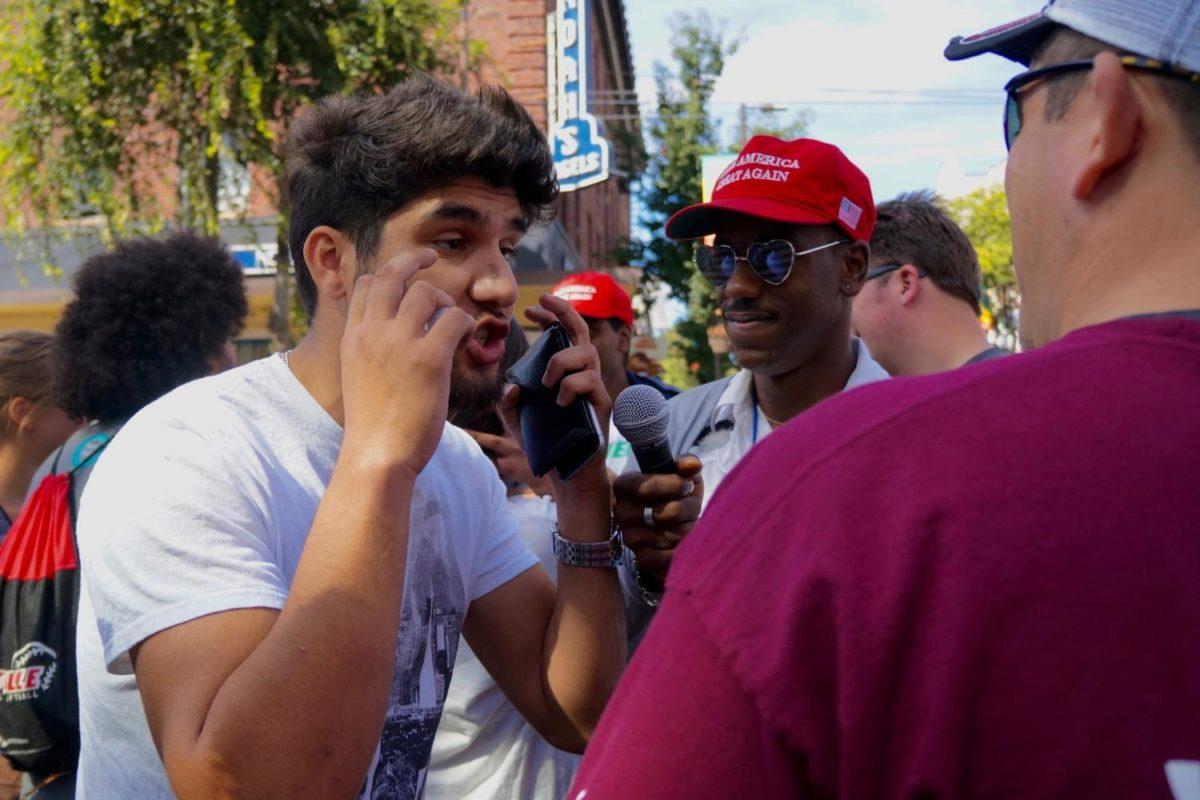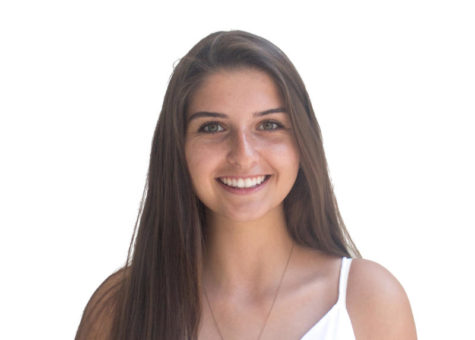Another weekend in Berkeley, another protest.
On Sept. 24, a short talk by British free speech advocate Milo Yiannopoulos sparked a day-long conversation between conservatives and liberals on various issues.
Yiannopoulos, a former Breitbart editor, was originally scheduled to speak at Sproul Plaza in Berkeley as a kick-off to a long-anticipated “Free Speech Week.” The event was canceled after the week’s organizers allegedly failed to meet UC Berkeley’s deadlines for securing an indoor venue.
However, the main message of free speech stuck around and initiated both conversation and confrontation throughout the college town.
Michael DaRodda, a student at UC Berkeley, joined the conversation with Amber Stella, another student, to protest Yiannopoulos’ message.
“We are attacking free speech because their free speech has attacked and sequestered and isolated us for so long,” DaRodda said. “He’s not coming here for free speech, he’s coming here to say that any laundry list of minorities’ rights are un-American.”
For others, Yiannopoulos’ advocacy for free speech was helpful and allowed for everyone to voice their opinions.
Sarah, a Sacramento-area resident, wore a “Feminism is Cancer” T-shirt and requested to keep her last name private.
“The first two waves of feminism were necessary and important,” she said. “Women were less than men and did not have as many rights as men. Feminism has now become just complaining about everything men do. It has become cancer because it has become an ugly blemish on our culture. Women are complaining and saying they are victims. I am not a victim– everything I’ve done is my choice.”
Yiannopoulos’ quick rise as an internet personality is attributed to his beliefs, which are considered derogatory and oppressive by some.
“We could do with a little meanness in American society. The reason people like me get upset with political correctness is that it kills,” he said in an interview with CNBC.
Openly gay, Yiannopoulos refers to his fans as “Dangerous Faggots” and denounces lesbians. He also strongly opposes Muslims and believes feminists have nothing to complain about.
These strong beliefs have not stopped his followers, however, and have actually encouraged some to speak freely. Ben Bergquam, a Fresno resident, does not believe in homosexuality as a “lifestyle choice” but supports the message of free speech.
“I believe in all speech,” he said. “There are certain designations that are not allowed, such as incitement, but hate speech is free speech. You have the right to say stupid things. If free speech only protects speech that everyone agrees with, then we don’t have free speech.”
Others, however, felt attacked by Yiannopoulos’ beliefs.
“I feel personally attacked by [Yiannopoulos’] message,” said Stella. “I am part of the LGBT community, and I don’t feel safe being here. I don’t feel safe being around people who support him. Free speech is meant to free you from the oppression, and they’re using their free speech to oppress us.”
One group set up a tent to talk to protesters that wanted to open a dialogue. Dave Gottfried, a Berkeley resident, wanted to make a statement about how important conversation is in a movement for free speech.
“We’re for empathy and a more empathetic world,” Gottfried said. “We just listen, but we also advocate dialogue through active listening. We’re trying to model a non-confrontational dialogue. By being here, we’re trying to make a statement with our presence. We feel that there is an understanding that this is something that’s necessary.”
Regardless of political views, many attendees of the Sept. 24 protest advocated free speech, resulting in Yiannopoulos’ promise to return to the UC Berkeley campus.
In a statement to the Los Angeles Times, he said, “The purpose of today was to show up on campus no matter what and to let them know we’ll be back as many times as it will take.”


